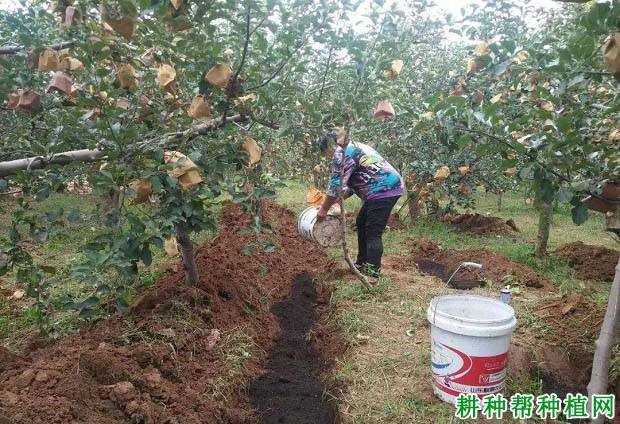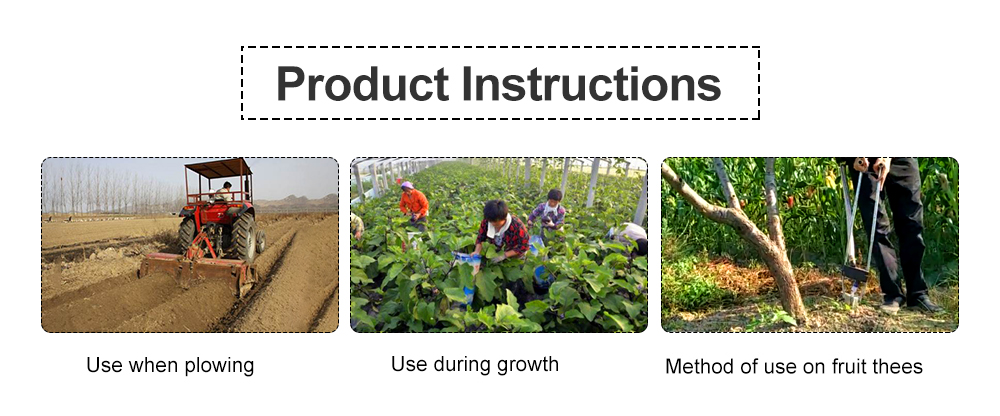Introduction to the Importance of Local Fertilizer Companies
Additionally, local fertiliser companies contribute to increasing agricultural productivity and sustain regional farming communities by tailoring their fertiliser solutions to meet the environmental needs of local agriculture. When designing and manufacturing fertiliser products, the companies take into consideration the climate and soil conditions in their area. This helps determine the type and quantity of nutrient inputs that crop plants need in their individual environment to thrive.
In general, by working with local fertiliser providers, you get numerous advantages. In the first place, these companies are extremely familiar with local agricultural problems and opportunities. This enables them to tailor fertiliser blends and formulations in a way that suits the compatibility of crops better than generalised products, which need to cater to a wider set of parameters. Being locally produced, fertilisers might arrive faster than imports, reducing the wait for deliveries of critical agricultural inputs in high planting and growing seasons. When it comes to money, by using local suppliers, you are putting that money back into the local economy, creating jobs locally.
But, further, the local fertilizer companies frequently adopt a social mission alongside their market orientation, a mutual commitment with their communities that helps to ensure that their activities contribute to the well-being of the region in ways that both stabilise and advance agricultural practices into the future. This setup provides the context for connecting up to a more encompassing analysis of the strategies these companies deploy to tailor their services to optimise boosts to crop yields and the health of the agricultural economy at large.
How Local Fertilizer Companies Enhance Agricultural Productivity
Small-scale fertiliser companies enhance the productivity of agriculture by tailoring solutions from the ground up, developing preservatives and chemicals that are designed for the unique challenges and opportunities that come with local environments. They know the limestone in the soil, the drought of the seasons and the needs of the crops – and can blend this knowledge into a more effective fertiliser.
Fertiliser blends customised to local soil nutrient deficits: One of the major ways the companies raise crop yields is by customising fertiliser blends to local soil nutrient deficits. In a way that increases yield without runoff and other environmental problems, they target crops’ needs locally. For example, if local soil analysis shows that the local soil is deficient in nitrogen, a local fertiliser company can manufacture a blend high in nitrogen that is specifically appropriate for local farming requirements.
Win-Win Wins: Many existing case studies show how a partnership with local agricultural sectors can be mutually helpful. A company producing fertilisers in the Midwest can optimise their relationship with corn farmers, for example, by developing a nitrogen-rich fertiliser along with other core micronutrients, such as zinc, which tends to be deficient in the region. This site-specific solution empowers farmers to maximise their yields and strengthen the nutritional quality and adaptation capacity of their crops.
Innovative Practices: Local fertiliser companies often embrace a number of innovative practices that further enhance the performance of agriculture on the field and facilitate farmers. These include the incorporation of newer organic-based options appealing to marketing preferences for more sustainable and nature-friendly products, as well as the application of newly emerging precision agriculture technologies that make use of GPS and IoT technologies to apply fertilisers more precisely and make fertilisation more targeted and less wasted.
These tailored and innovative products will have another important impact: increased crop yields, but combined with more sustainable farming, thanks to fertiliser being applied according to needs as much as possible. The local knowledge,Product development and the will to innovate that are the hallmarks of local fertiliser companies make them vital partners in the quest to meet growing food needs in a sustainable manner.

Profiles of Top Local Fertilizer Companies
Local fertilizer production is a promising industry that is constantly embracing new ways to go green and reduce dependence on oil. Here are three local fertiliser companies that have revolutionised the agricultural sectors in which they operate:
SHANDONG LOYAL CHEMICAL CO., LTD
Heritage and local impact: SHANDONG LOYAL CHEMICAL CO., LTD, which was founded by local entrepreneurs, has focused on producing artificial fertilisers to benefit local farmers for many years. As a result of its understanding and adaptation to local farming conditions and requirements, SHANDONG LOYAL CHEMICAL CO., LTD has developed excellent quality fertilisers.
Key Products and Innovations: From the laboratory to the fields, our innovation team has made every effort to develop advanced organic and mineral fertilisers that can improve soil health and reduce the environmental footprint. Our case studies reveal that local farms that use our fertilisers have seen significant increases in crop yield and key sustainability indicators.
EcoGrowth Fertilizers
A Commitment to Sustainability: EcoGrowth Fertilizers remains committed to sustainability. We produce fertilizers with environmentally-friendly ingredients, making sustainable farming possible without any harm to the soil or the quality of the crop.
Community and Educational Activities: Although a comparatively less known product line compared to the AP pet food brand, EcoGrowth contributes to ‘community and educational activities, involving the local community farmers in workshop, seminar and training programmes on eco-friendly farming practices and things to do with organic fertilisers’ servicetoall.com.
AgriBoost Solutions
Research and Development:This company is great because they focus a lot on research and development, which ultimately leads to producing trend-setting fertilizers that show great efficiency in producing crops in the specific condition of the area.
Product customization that suits local crops : AgriBoost’s product is provided to local companies as a set of products that are specifically customized for local crops. With constant innovation, AgriBoost provides products that can promote both high output and quality of agricultural products all over the country. In addition, since high-quality fertilizers and agricultural chemicals are produced domestically, the company contributes to the economic sustainability of local communities.
These companies show how locally owned fertiliser businesses can serve, develop and contribute to their regions. Thanks to both heritage and their dedication to sustainability, open-mindedness and being embedded in their communities, they not only help to bring local farming higher and more sustainable yields but also contribute to the goals of the sustainable agrifood system and the wellbeing of the communities they serve.
The Economic and Environmental Impact of Choosing Local
Choosing local fertiliser businesses will have economic and environmental benefits on a much larger scale than just the direct crop yields. While the primary function of local farmers might be supplying essential nutrients to crops, the impact of companies on the local economy and worldwide the environment will extend much further than a mere increase in crop yields.
Economic Benefits of Local Fertilizer Companies:
Boost for Local Economies: Local fertiliser companies sustain local economies by creating local job opportunities or expanding existing ones. Spending money in a local business, in general, serves to stimulate the local business economy, multiplying its impact in the local economy through what is known as the local economic multiplier effect, thus improving the financial stability of a city or a county.
Decrease in costs and complexity of logistics buy local, reduce costs and complexity of logisticsExperts can design supply chains that have lower research, design, shipping and storage costs, resulting in a more efficient supply chain and reduced carbon footprints due to transport over greater distances.
Environmental Benefits of Choosing Local:
Less transport emissions:By reducing the distance between the site of production and the sale point, local fertiliser producers help in reduction of greenhouse emissions generated as a result of long-distance transportation. Climate change is one of the major global challenges of our age and is caused by an increase in carbon emission, one of the most common greenhouse gases. Through a decrease in carbon emission, the fight for sustainability will be made easier.
Promotion of Sustainable Practices: Cream of the crop: local fertiliser manufactures are genuinely committed to sustainability both in products and operations, frequently even using locally sourced materials, for the added benefit of reducing the environmental footprint caused by sourcing as well as promoting the conservation of regional ecological systems.
Tailored Solutions Enhancing Environmental Sustainability:
They are far more likely to develop products with a higher degree of site-specificity, which translates into much more sustainable farming practices. So, in a place where there’s a risk of nitrogen runoff, perhaps a local manufacturer can develop a slow-release nitrogen formulation that has a much lower risk of this happening.
Case Studies Highlighting Benefits:
Think of a local fertiliser business that works with neighbouring farms; they take on recycling organic waste into compost which helps to reclaim nutrients from the farming process, while also reducing waste production, and reusing nutrients in a manner that feeds the biological system at the local level.
Another example could be a farmer who’s blending a product to counter an inherent nutrient deficiency found in local soils and associated with worsened runoff and reduced water quality in nearby rivers.
After all, buying them helps the domestic fertiliser companies, which is economically and environmentally sensible: locally based fertiliser companies that sell locally meet the needs of a local agricultural sector and will help achieve global environmental goals through reduced emissions, agroecological approaches and the development of more resilient local ecosystems.

Conclusion
Local fertilizer companies are another huge game-changer in the lawn-care and agricultural landscape, not just because they benefit sustainable agriculture and local economies; they contribute to much of the world’s food. But simply reducing emissions won’t be enough for companies to prove how much they contribute to a better world for a growing population. The best local fertilizer companies model different ways of achieving those goals. Their solutions are bespoke, finely attuned to regions. They contribute to growth and sustainability.
The Stay Green Fertilizer Company, SHANDONG LOYAL CHEMICAL CO., LTD, EcoGrowth Fertilizers and AgriBoost Solutions, for example, went beyond the call of duty as they continuously strived to develop innovative yet eco-friendly products good for local agriculture and environmentally sustainable mindsets. They set example in the industry that would eventually effect market behaviour and expectations of consumers towards behaviour change in favour of greener tech.
These companies are helping to pave the path of future agriculture. Unlike other large agriculture companies that focus on overuse of fertilisers with the ‘one-size-fits-all’ model of crops, these companies are taking steps to encourage ecological sustainability in farming. In addition to increasing crop yields, they also decrease the ecological footprint of soil and contribute to sustainable development by conserving resources through targeted fertiliser application and reducing pollution.
Being pioneers in the agricultural industry as local fertiliser companies, they are part of the local agriculture that needs to become more sustainable in order to maintain its accelerating growth as it provides food for the world. By being consumers or businesses that use environmentally friendly and superior quality products, they are becoming part of a positive cycle of growth and sustainability that offers real benefits to local communities and the global environment.
In short, choosing to work with the right appropriately scaled local fertiliser company should be seen as much more than a simple commitment to agricultural productivity. It is in fact a broader commitment to environmental stewardship and long-term economic sustainability. The question that remains is whether or not these companies can continue to innovate, to lead and to play a much-needed role in helping to make sure that agriculture can continue to serve people for generations to come while doing no harm to our common home.
How to find authoritative sources and references for yard fertilizer companies:
Company Websites:
Visit the websites of prominent yard fertilizer companies such as SHANDONG LOYAL CHEMICAL CO.,LTD, Espoma, or Milorganite. These sites often feature sections for “Resources,” “Sustainability,” or “Investor Relations” where you can find reports, product details, and sustainability initiatives.
Industry Analysis Websites:
Statista : Offers statistical data and market analysis that can provide insights into the yard fertilizer industry.
IBISWorld : Known for its broad industry reports, including specifics about the fertilizer sector.
Scholarly Articles:
JSTOR : Access to academic journals and articles, which may require a subscription or academic affiliation.







